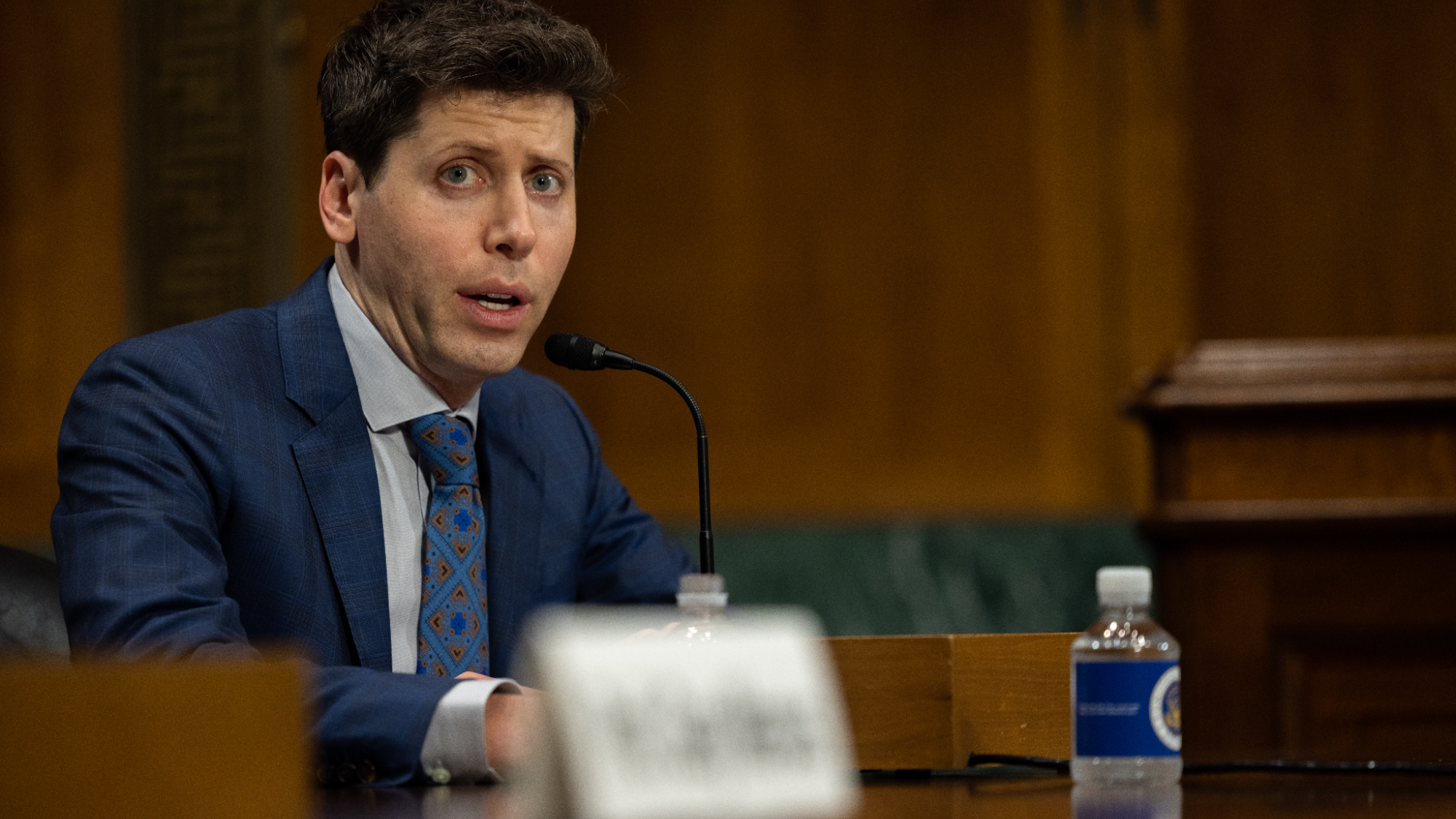
As far as senators are concerned, it's all about beating China.
OpenAI CEO Sam Altman was among various tech executives that testified to the US Congress this week about the burgeoning AI sector’s risks and potential regulation.
You will be amazed to hear that Altman’s opening remarks said he believed that AI “will be at least as big as the Internet, maybe bigger,” which the tech’s various evangelists have been saying for around a decade now (via AP). But wait, lawmakers! “For that to happen, investment in infrastructure is critical” and “dual revolutions” of AI and the energy sector will follow, ushering in the land of milk and honey to “change the world we live in, I think, in incredibly positive ways.”
Altman was joined by AMD CEO Lisa Su, AI company Coreweave’s co-founder Michael Intrator, and Microsoft president Brad Smith. All four asked senators to streamline AI-related policy but, this being the United States, the lawmakers wanted their chance to grandstand too.
“China aims to lead the world in AI by 2030,” thundered Republican senator Ted Cruz. “In this race, the United States is facing a fork in the road. Do we go down the path that embraces our history of entrepreneurial freedom and technological innovation? Or do we adopt the command and control policies of Europe?”
US dominance in AI and how to maintain it was one of the big themes, rather than more prosaic concerns such as misinformation, privacy, or how OpenAI is built on scraping copyrighted content. Amusingly enough OpenAI has previously argued that, if it’s not allowed to do this, American AI will lose out to China!
“The leverage and the power the US gets from having iPhones be the mobile device people most want, and Google being the search engine that people most want around the world is huge,” said Altman. “We talk maybe less about how much people want to use chips and other infrastructure developed here, but I think it’s no less important, and we should aim to have the entire US stack be adopted by as much of the world as possible.”
The Trump administration has already announced that it will be restricting sales of the latest AMD and Nvidia chips to China, with both companies estimating this will cost them billions in revenue. But what’s a few billion dollars when you’re sticking it to the communists?
Altman praised the “unbelievable” state of Texas for incentivising OpenAI and its partners to build the Stargate data center in Abilene, and with max chutzpah said this “would be a good thing for other states to study.” He also predicted that, when complete, Stargate would be the “largest AI training facility in the world,” and definitely not an ancient alien ring that acts as a wormhole to the universe.
The only thing that isn’t rosy? Those pesky rules and regulations harshing my mellow, bro.
“It is very difficult to imagine us figuring out how to comply with 50 different sets of regulations,” said Altman. “One federal framework that is light touch, that we can understand, and it lets us move with the speed that this moment calls for, seems important and fine.”
The hearing was largely uncontroversial, apart from the odd Democratic driveby on Elon Musk. Senator Tammy Duckworth posed this question: “Does anyone truly have confidence that had DOGE been around decades ago, they would not have cut the project that created the Internet as an example of wasteful, publicly funded research and development?”
Other than that the mood music was all about America the free, and very much what senators can do to help the industry’s battle for global dominance. Altman and his fellow tech executives definitely seem to have the ear of Congress: whether that’s a good thing remains to be seen.
“Look, there is a race, but we need to understand what we’re racing for,” said Democratic senator Brian Schatz. “It’s not just a sort of commercial race, so we can edge out our nearest competitor in the public sector or the private sector. We’re trying to win a race so that American values prevail.”
2025 games: This year’s upcoming releases
Best PC games: Our all-time favorites
Free PC games: Freebie fest
Best FPS games: Finest gunplay
Best RPGs: Grand adventures
Best co-op games: Better together








